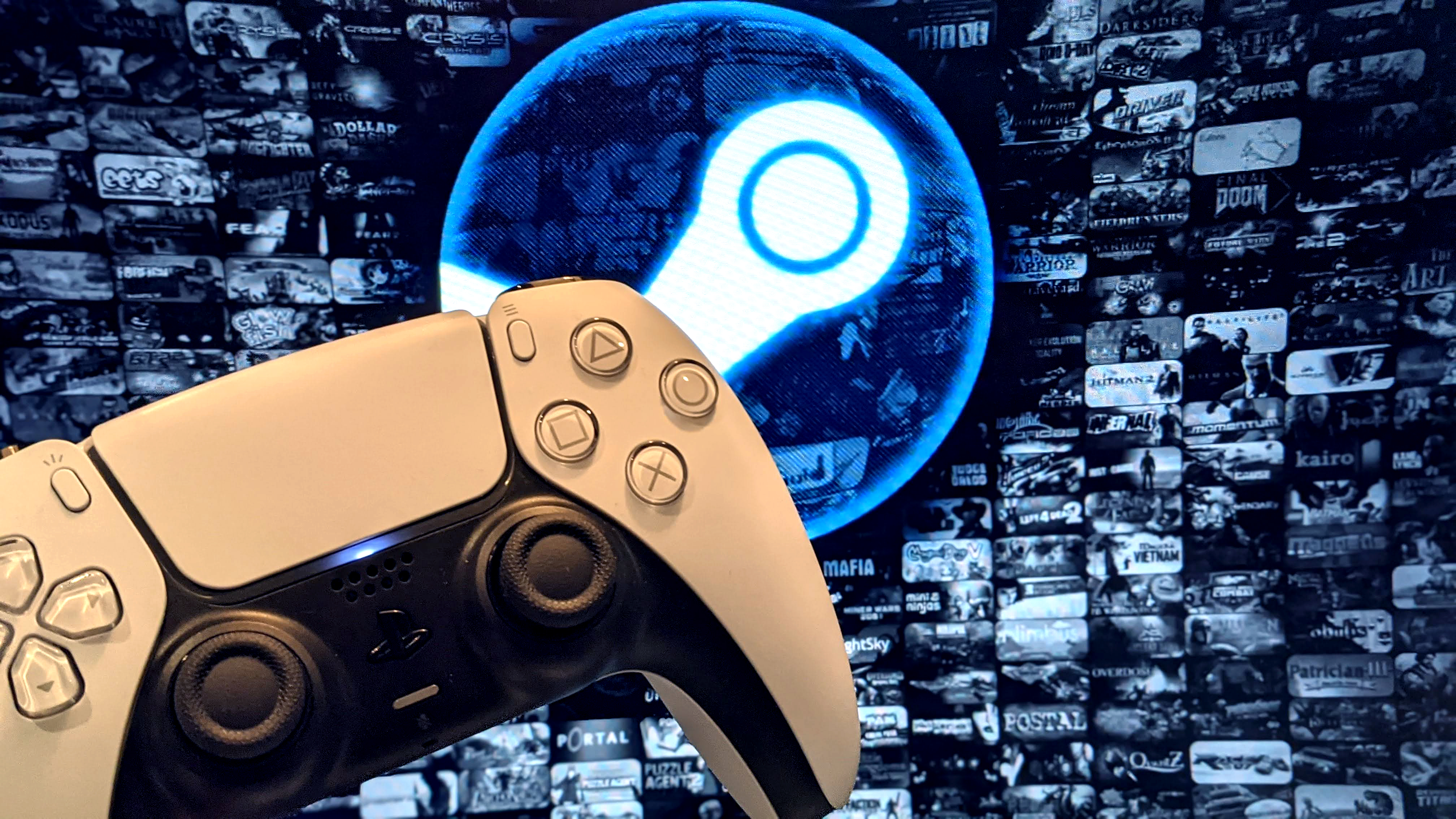Steam's quick support for the PS5 controller embodies what I love about PC gaming
The PC community is always pushing the platform to do more, and do it better.

The morning the PlayStation 5 came out, on November 12, you could kinda use the new DuelSense controller on PC, but with no way to configure it or tap into its rumble motor or motion controls. By the end of the day, developers at Valve had already released a Steam beta build that made it easier to plug in the controller and start using it, though without those advanced features. Six days later, the DualSense was almost fully working with Steam, including rumble, gyro, and the trackpad. Within just days, Valve had made sure one of the most exciting new features of the next-gen consoles was compatible with our PCs, too.
The DualSense can't do everything on PC that it can do on the PlayStation 5, just yet. Steam's isn't configured to support its adaptive triggers, for example, which can ratchet up the tension under your fingers. But that's the kind of feature that games need to be programmed to take advantage of, anyway. And over in the open source project DS4Windows, programmers are picking apart how the DualSense controller works and mapping out the signals it sends to the adaptive triggers. My bet is that they get them working within a month.
It happened so fast. Before the console even released I was hoping for an official driver, but the point almost feels moot now, especially since you can add most non-Steam games to Steam and use the controller API. It's a killer, underappreciated feature—or maybe appropriately appreciated, considering how many players on Steam use controllers these days. It's a perfect example that sums up why I love PC gaming.
The PC isn't just the platform that can do almost everything. That's been the case for a long time—Nintendo and Sony were throwing lawsuits at emulators that could play their games back in 1999 (they lost, because emulators are legal, by the way). What's especially exciting about modern PC gaming is how dedicated some leading developers like Valve and the entire hobbyist community is to making everything easier, too.
Steam's controller configurator is a prime example. It has native support for a ton of controllers, making it easy to just plug them in and go, as well as deep options for customizing how they work if you want to do something special. Another underappreciated feature is Steam's turn notifications, which let you play chill, asynchronous games with friends.
GameCube/Wii emulator Dolphin is another piece of software that I love—it's so much easier to use today than it was a decade ago, and runs the vast majority of the games it emulates flawlessly. It even has native support for real Wii Remotes and the GameCube controller.
Adventure game platform ScummVM started out in 2001 as a way to get old LucasArts games running on modern PCs, but has since grown to support tons of finicky 3D games, too, like Westwood's Blade Runner. For many games supported by ScummVM, it's possible to get them working with a few hours of tinkering with Windows compatibility settings and rooting around in system files. But a dedicated team of volunteer programmers have spent years reprogramming them, so you can get them working with a couple clicks of the mouse instead.
Keep up to date with the most important stories and the best deals, as picked by the PC Gamer team.
The quick support for the DualSense controller most reminds me of the efforts of PC modders like Durante, whose DSFix single-handedly made Dark Souls playable—and massively successful—on PC. And also Kaldaien, who fixed performance issues in Nier: Automata, Tales of Symphonia, and other games. Kaldaien has built up a community around an open source program called SpecialK that offers monitoring tools, texture modding, HDR tone mapping, and more.
Because it's an open platform, almost all of the PC's greatest strengths have come from the passion of developers rather than an explicit push to sell a product. Sure, Valve always wants to sell more games, but its controller support works towards that goal by making PC gaming better for everyone, not just Valve or a specific game. GOG wants more people to buy games through its store, but its approach to competition is making an all-inclusive client that solves the fragmentation of PC libraries.
We still get subpar PC ports from time to time, and there will always be custom tailored features on consoles, like the DualSense's triggers, that aren't quite the same on PC. (Then again, you can't customize the gyro on the PS5 like you can through Steam). But PC users will forever be coming up with ingenious ways to make games on the platform better—or just to play them with the weirdest controller they can imagine. It's a spirit of ingenuity I'll never stop appreciating.

Wes has been covering games and hardware for more than 10 years, first at tech sites like The Wirecutter and Tested before joining the PC Gamer team in 2014. Wes plays a little bit of everything, but he'll always jump at the chance to cover emulation and Japanese games.
When he's not obsessively optimizing and re-optimizing a tangle of conveyor belts in Satisfactory (it's really becoming a problem), he's probably playing a 20-year-old Final Fantasy or some opaque ASCII roguelike. With a focus on writing and editing features, he seeks out personal stories and in-depth histories from the corners of PC gaming and its niche communities. 50% pizza by volume (deep dish, to be specific).


